SUMMARY
This is AI generated summarization, which may have errors. For context, always refer to the full article.
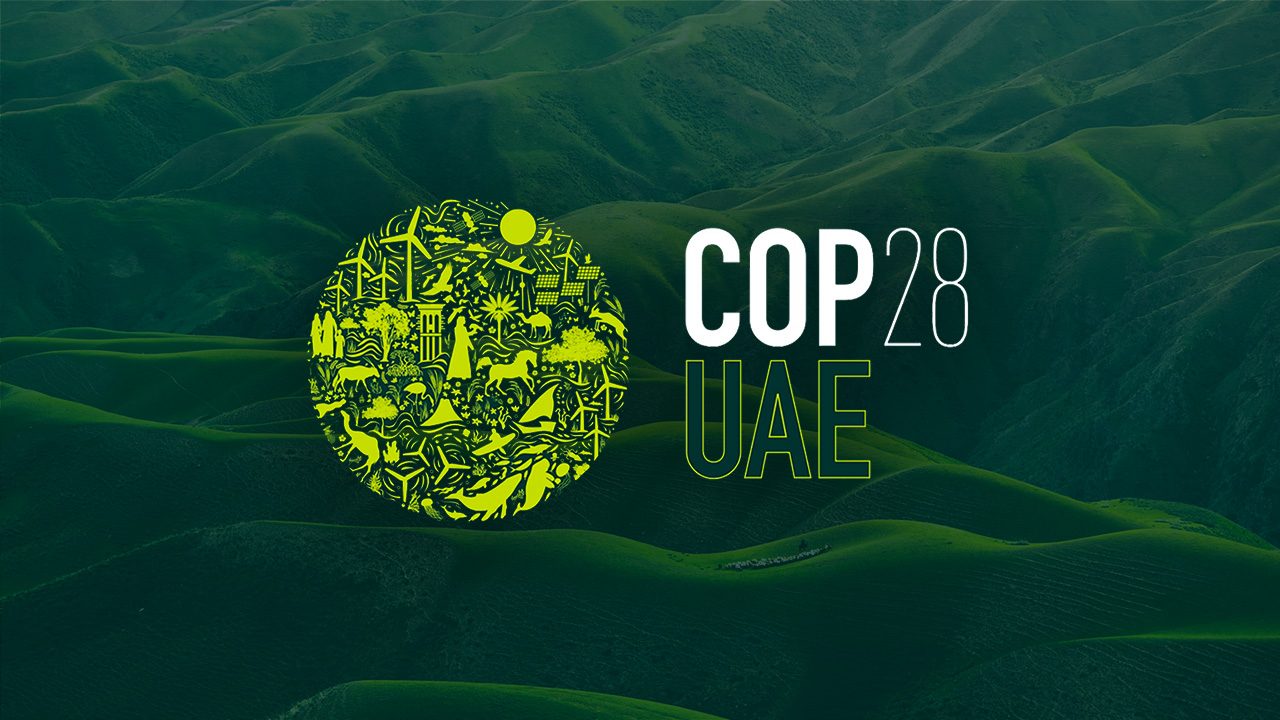
MANILA, Philippines – Over 70,000 participants, including heads of state, from around the world are expected to gather at the United Nations (UN) Climate Change Conference or COP28, happening from November 30 to December 12, 2023, at Expo City in Dubai, United Arab Emirates (UAE).
The annual climate talks hope to deliver the promises made in previous years to “accelerate action” in tackling the climate crisis. Ramping up the transition to renewable energy and climate finance will take center stage in this year’s climate talks.
COP28 will also be the first climate conference where a global stocktake (GST) will be conducted to help countries strengthen their climate policies and commitments to be put forward by 2025. GST is a process for countries and stakeholders to see collective progress toward meeting the goals of the historic Paris Agreement.
Acknowledging that the world is not on track to limit global warming to 1.5 degrees Celsius, countries are expected to not only accelerate action but also scale-up ambition at COP28.
Blue and Green Zones
COP28’s events are divided into two zones for different attendees: the Blue Zone and the Green Zone.
The Blue Zone is managed by the UN Framework Convention on Climate Change (UNFCCC) and is open to accredited party and observer delegates. It will host the formal negotiations across the two weeks of the conference.
According to the COP28 website, the Blue Zone will host the World Climate Action Summit, the high-level segment for heads of state or government, country pavilions, presidency events, and hundreds of side events including panel discussions, roundtables, and cultural events.
The Green Zone will cater to the public, businesses, nongovernmental organizations, and Blue Zone delegates. The zone has seven thematic hubs that will feature breakthrough climate innovations, cutting-edge tech, interactive exhibits, inspiring art installations, film screenings, and talks across Expo City.
Global stocktake
One of COP28’s highlights this year, the first GST, is set to conclude in this year’s climate talks.
According to the COP28 website, the GST is a process designed to allow nations and stakeholders to see their progress in achieving the Paris Agreement. The agreement aims to limit global temperature increase to 1.5°C above pre-industrial levels by 2100 and to act to adapt to the already existing effects of climate change.
“This assessment involves a comprehensive review of all aspects related to global climate action and support, enabling the identification of shortcomings and the collaborative development of solutions, both for the immediate future and beyond 2030,” the COP28 website said.
The stocktake is intended to be used to update the nationally determined contributions – promises made by nations to achieve the goals of the Paris Agreement by 2025, the UNFCCC website said.
Loss and damage fund
Experts are also looking at COP28 to see if it would be successful to get climate finance flowing to vulnerable countries.
Earlier this month, a transitional committee created at COP27 recommended, among other things, making the World Bank host the loss and damage fund despite reservations from developing countries. The recommendation will be up for governments’ approval at COP28.
The fund is aimed at helping developing countries bear the immediate costs of climate-fueled events such as storms and floods.
Last November 16, partner experts from the Allied for Climate Transformation By 2025 (ACT2025) consortium voiced some of the climate-vulnerable countries’ expectations for COP28, including a “scaling up” of climate finance that is “embedded into the most important negotiation items,” among them loss and damage.
Key players at COP28
Major players and negotiation blocs, each with their own concerns and interests, will discuss and negotiate pressing climate issues at COP28.
This makes reaching a consensus very difficult and can even result in last-minute drama, like what happened at COP26 and an overnight session at COP27.
Aside from the usual key players in the annual climate talks like China, the United States, the European Union, and the United Kingdom, who are among the world’s top greenhouse gas emitters, the UAE will also be instrumental at COP28.
The UAE will host COP28 with Sultan Al-jaber as the president-designate guiding the annual climate talks. The choice has drawn criticism from some US and EU lawmakers, as well as campaigners, as Jaber is the boss of state oil giant ADNOC.
In COP27, the US and China – the world’s two largest greenhouse gas emitters – agreed to restart cooperation on climate change.
Brazil is also expected to be in action at COP28. Brazilian President Luiz Inacio Lula da Silva, backed by a coalition of rainforest nations including Indonesia and the Democratic Republic of Congo, plans to give a united front in calling on rich, industrialized countries to deliver on commitments to finance actions on climate change in poorer countries that did little to cause global warming.
“We want to prepare for the first time a joint document of all forest countries to arrive united at COP28, in the United Arab Emirates, that we can seriously discuss with rich countries,” Lula said at the Amazon Summit on August 9.
Marcos expected to attend
President Ferdinand Marcos Jr., who was not at COP27, is expected to attend the annual climate talks this year. He expressed his interest to attend following the invitation of UAE Ambassador to the Philippines Mohamed Obaid Salem Alqataam Al-Zaabi in June. He said that “climate change is a primordial issue when it comes to the Philippines.”
Aside from Philippine civil society organizations that frequent these climate talks, as well as the official Philippine delegation, Makati City Mayor Abigail Binay will also attend COP28 as part of its advisory committee. Makati was subsequently proclaimed by the UN Office for Disaster Risk Reduction as the first-ever Resilience Hub in Southeast Asia. – with research from Kaela Patricia Gabriel/Rappler.com
Add a comment
How does this make you feel?


![[OPINION] Grading Marcos admin’s performance on the climate agenda](https://www.rappler.com/tachyon/2024/06/grading-marcos-performance-climate-agenda-june-25-2025.jpg?resize=257%2C257&crop=441px%2C0px%2C1080px%2C1080px)

![[OPINION] No room for ‘business as usual’ in era of climate emergency](https://www.rappler.com/tachyon/2024/06/no-room-business-as-usual-climate-change-june-25-2024.jpg?resize=257%2C257&crop_strategy=attention)

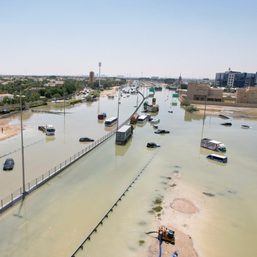
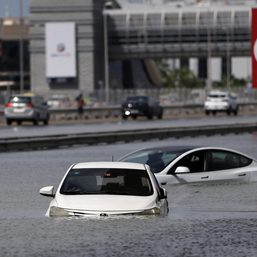
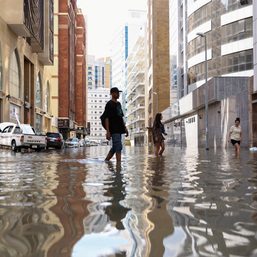
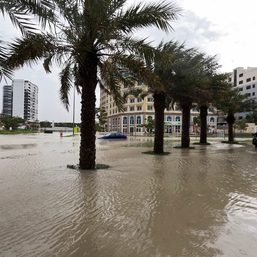



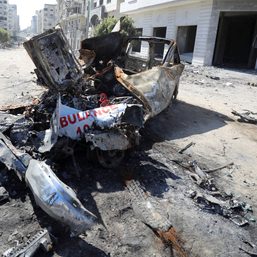


There are no comments yet. Add your comment to start the conversation.